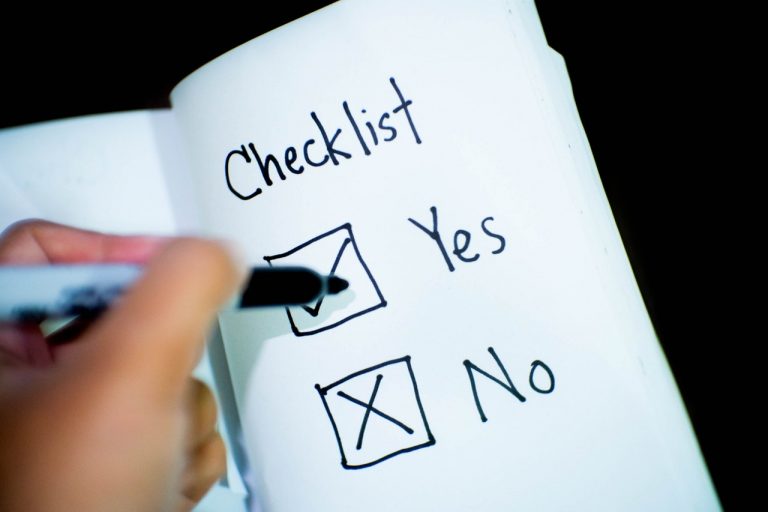Joint Checking Accounts: Getting Serious on Your Life and Finances as a Couple

Relationships will always be challenging, but as you move forward as a couple, it is inevitable to talk about finance. If you both are planning to create a future together, this is a “talk” you need to have.
However, discussing money has never been an easy thing. For other people, just the thought of asking what the other person’s salary is already considered taboo. Still, couples who take care of their finances and plan ahead have a healthier relationship.
THE RELATIONSHIP STATUS
Since money is a critical topic, this should only come up if you’re already in a progressive relationship. It’s not actually sexy to talk about your joint savings account on the first date. You also don’t get to open up a joint bank account after dating for a couple of weeks. Yes, there are couples who get engaged after a couple of weeks, but still, money is a different thing.
The reason why you would want to watch out for your relationship status is because talking about money is simply implying that you both have an intention to create a future together. If you’re not at that stage yet in your relationship, then this may not be the perfect time to plan about getting a joint bank account.
The other reason why the strength of your relationship is important is because trusting your money to someone else is a difficult choice. You need to know this person by heart. You both need to understand each other’s impulses and values. There should be a common ground when it comes to how you two are balancing each other’s strengths and weaknesses.
For those who have tested their relationship and who have undergone difficult storms, here are a couple of key signs you may be ready for the “money talk.”
1. You have a couple of joint expenses.
If you, as a couple, are buying collectively, then it is possible to open up discussions about money. If you have a rule about paying 50/50 on dates or if you live together and do groceries together, then this is a good starting point.
The fact that you are both willing to pitch in on things you will both enjoy means you are actively setting aside money for “couple activities.” Even though there may be other buying priorities for each of you, your joint expenses would be easier to manage if you have a joint account where these “couple” expenses can be deducted from.
2. You’re actively planning for the future.
Yes, this feels like a no-brainer. However, wish-washy aspirations of getting married and living in a far-off land of Enchantia is not an “active” and realistic plan for the future.
If you guys are already having talks on marriage, babies and other talks about creating a family, then you’re definitely ready.
Couples who have an understanding on where each other want to go, what they want to accomplish and the life they want to live together make better decisions when it comes to money. Since you know that each dream would take time and discipline, planning and preparing for the future is a must.
3. You’re money-sync.

There are those who say they have found their “soulmate,” but there are those special ones who did not only find the love of their lives, but also found their “money mate.”
What does that mean?
It means that you both have similar values when it comes to money. It’s either you’re both frugal or you’re both hardworking and would like to enjoy life to the fullest. There are different types of money personalities, but for as long as you have similar approach on how to deal with money, it will always be easier to talk about it.
When it comes to creating a joint-account, couples who are money-sync usually know if they should have both signatures or they already trust each other to just require one signature to withdraw from the banks. It really depends on what you can both agree on.
JOINT ACCOUNT PROS & CONS
Now that we know you are both ready to talk about how you, as a couple, are going to deal with money, let’s tackle the specifics.
According to Reader’s Digest, there are multiple benefits to having a joint account. Couples need to create a system that works for them and that goes with money as well. What joint account provides is accountability and transparency when it comes to use of common resources. It also opens up an avenue of trust and responsibility for the couple.
First of all, the main benefit of a joint account is the couple’s ability to access the money and the bank balance whenever they want. Though there are scenarios that let couples choose if they would require both persons to sign before a withdrawal, there are other platforms that are more accessible.
With the tracking of finances, the joint account would allow the couple to review their goals, expenses and income. This gives them the ability to make better choices towards savings and spending.
The person who always pays bills early, not the one who doesn’t even bother to open the envelopes, will take on the job of check writer and account balancer. Joint checking also makes it simple to handle shared expenses. It all comes out of the same pot of money.

The other benefit of having a joint account is the egalitarian approach in the household. According to Young & Thrifty, money will always be a big issue in any family or relationship. However, if there is a joint bank account, there is a balance in expenditures. If in case the other person is making more money, it would not matter since this is a joint account and with that comes the understanding that the money saved or earned in the account are to benefit the couple.
Since there is transparency, it’s also easier to track where the money goes. There’s no pin-pointing on who spent a little too much on wine this week or who went on a binge shopping of game cards. You both understand that each of you would have an allowance to spend for your personal and mutual needs. Yes, there are times when a compromise has to be made, but since you both can see how the money is being spent, it becomes a two-way street for the couple to give and receive.
Now, we go over to the cons of this set-up.
There are times that a joint account can put too much strain for a couple. Since your expenditures are clearly transparent to your partner, you may feel that you no longer have financial independence or that there’s always this lingering feeling of unease.
If you really don’t feel comfortable joining accounts for now, you can still open up the talks about joint finances, but leave your accounts separate. To have accountability on joint expenses, there has to be an understanding of where the common spending comes in. Do you want to spend 50-50 on dates? Do you want it by turns? All of these should be considered by the couple, especially of both of you have plans to go out from time to time or to travel outside the country.
Aside from the unease of trusting your money to someone else, this may also cause for bickering or arguments on who’s got more money or who deserves to spend it all. Let’s face it, money has a great impact on the power dynamics of every couple. Having a joint account can be beneficial, but if there are underlying issues on who’s “better” when it comes to money, this may not be a good solution for you.
Still, there’s hope. If the couple is serious about their relationship, you’d be travelling down the aisle in one way or another and joint finances would be an open book yet again.
It is good to get started now that you’re still planning your future together since it will give you opportunities to get to know each other even more.
Couple Finance Can Lead To Positive Relationships

“The couple that saves together are stronger.”
According to Oprah.com, financial planning for couples can actually be beneficial for the relationship. It is even recommended to talk about it “before your relationship becomes serious.”
Just like our food habits, money habits can tell you a lot about a person. However, it doesn’t mean that when someone has a lousy credit score, you should break up with them. There should be an open communication about how you or your partner ended up with a low credit score, for example, and if this is a “bad habit to break” or if it’s just a cause of unfortunate circumstances.
“A good relationship is one in which each party helps the other make better choices—and you and your beau might be able to help each other become smarter about money.”
Though money could bring up ego and pride issues, this is a good starting ground for the couple to understand that they are equal in the relationship. It’s different when you just want to say you have an equal say in what goes on in the decision making process and it’s another when you guys are actually practicing it.
“Who makes what is irrelevant. Do you hear me, stay-at-home moms? The size of your paycheck does not determine your role in the family finances. Respect each other as equal partners, with an equal say in money management.”
“The size of your paycheck does not determine your role in the family finances. Respect each other as equal partners, with an equal say in money management.”
The other you both could do is to simply put it in writing. This could also ease up the tension of not being able to trust your money to someone else completely. We all know that there’s nothing attractive about asking your romantic partner to sign a legal contract, but this ensures that you both value what you are investing in the relationship.
Written contracts are especially important for those who have kids outside the relationship. There should be a clear understanding of who should get the portion of both your accounts and what happens if the relationship fails. This doesn’t mean that you are anticipating the demise of the relationship. It just means that when there are children involved, there should be greater caution because they should be a part of the planning as well.
The next thing to tackle is debt. You could come in in the relationship with debts accrued when you were single. You could both decide on whether you’d work together in easing out these debts or if it would be better for it to be settled separately.
“When you wed, don’t automatically rush to combine everything. You can help each other out by chipping away at your loans without becoming officially responsible for each other’s.”
Lastly, you can divide and conquer. You can create three accounts: one for you, for your partner and for your joint account. Though this may sound a little more tedious, it gives you the ability to have separate savings that you both could individually enjoy. It doesn’t matter if it’s a small portion of your annual income; it can provide you with the freedom to give your partner a surprise or spend it for your personal leisure.
“For example, if you make $60,000 and your partner makes $40,000, you’re responsible for 60 percent of household expenses.)Whatever money doesn’t go toward these costs stays in the individual accounts, to be used at each person’s discretion.”
Money talks will always be a part of committed relationships. Both partners should actively seek out solutions on how to create a safer and productive space for finance planning.
Talking about money doesn’t mean you’re don’t love each other and you are over protective of material things. It just means “you love your partner and you love yourself.” It means that you are both willing to work together to create a life for your future and for your family.
